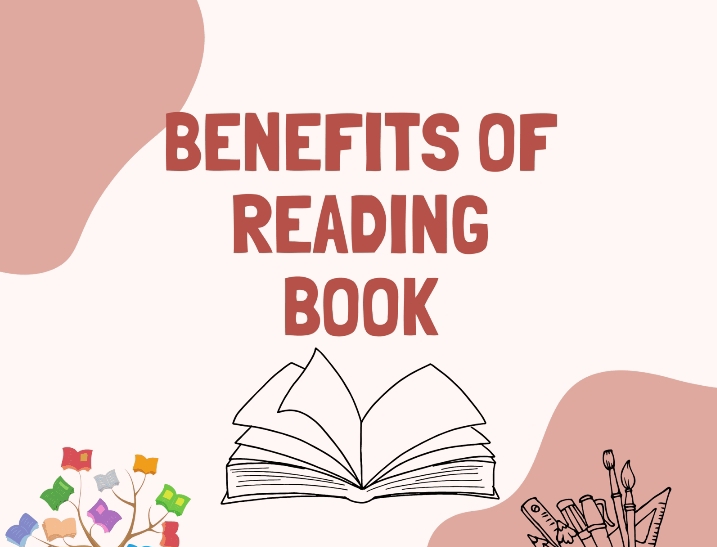
Reading is a fundamental activity that enriches our lives in numerous ways. Whether it’s diving into a thrilling novel, perusing the latest scientific research, or indulging in a historical biography, reading opens doors to knowledge, creativity, and personal growth. This blog explores the diverse benefits of reading, delving into how it impacts our cognitive abilities, mental health, and social connections.
Cognitive Benefits of Reading
- 1. Enhanced Brain Function: Reading stimulates brain activity, enhancing neural connections and improving overall cognitive function. Studies show that reading can increase brain connectivity, particularly in the somatosensory cortex, the region associated with comprehending and simulating sensations. This brain exercise helps maintain mental sharpness as we age.
- 2. Improved Vocabulary and Language Skills: Exposure to varied writing styles and vocabulary enriches linguistic capabilities. Readers encounter words and expressions that enhance their communication skills, making them more articulate and effective in conveying their thoughts.
- 3. Critical Thinking and Analytical Skills: Engaging with complex narratives or informational texts hones analytical abilities. Readers learn to assess arguments, identify themes, and draw conclusions, fostering a more nuanced understanding of the world.
- 4. Memory Improvement: Remembering characters, plots, and details from a book exercises memory retention skills. This mental workout strengthens existing neural pathways and creates new ones, contributing to better memory recall in everyday life.
Emotional and Psychological Benefits
- 1. Stress Reduction: Immersing oneself in a good book provides an escape from daily stressors. Research indicates that reading can lower heart rates and reduce muscle tension, creating a sense of calm and relaxation.
- 2. Empathy and Emotional Intelligence: Literature, especially fiction, allows readers to step into the shoes of diverse characters. This practice fosters empathy and enhances emotional intelligence, as readers explore different perspectives and experiences.
- 3. Mental Health Support: Reading serves as a therapeutic activity for many. Bibliotherapy—the use of books for psychological healing—is increasingly recognized as an effective tool to combat anxiety, depression, and other mental health challenges.
- 4. Boosted Happiness and Fulfillment: Discovering stories or learning about topics of interest brings joy and a sense of achievement. Readers often find inspiration and motivation within the pages of a book, enhancing their overall well-being.
Social and Cultural Advantages
- 1. Stronger Social Connections: Book clubs and literary discussions foster community and camaraderie. Sharing insights and opinions about books strengthens bonds among participants and encourages meaningful interactions.
- 2. Cultural Awareness and Understanding: Books provide windows into different cultures, histories, and traditions. This exposure promotes cross-cultural understanding, reducing prejudice and broadening one’s worldview.
- 3. Improved Communication Skills: Readers often become better storytellers and conversationalists. Their exposure to diverse narratives equips them with the ability to express themselves clearly and engage in stimulating discussions.
Personal Growth and Lifelong Learning
- 1. Knowledge Acquisition: Reading is a gateway to endless learning opportunities. From self-help books to scientific journals, every genre offers valuable insights that contribute to personal and professional development.
- 2. Creativity and Imagination: Fictional worlds and characters ignite the imagination, fostering creativity in readers. This imaginative thinking translates into problem-solving skills and innovative ideas in real-life scenarios.
- 3. Discipline and Focus: Setting aside time to read regularly cultivates discipline. The ability to focus on a book for extended periods improves concentration, a skill that benefits other areas of life.
- 4. Goal Setting and Achievement: Many readers set reading goals, such as completing a specific number of books annually. Achieving these goals fosters a sense of accomplishment and encourages the pursuit of other aspirations.
Practical Tips to Cultivate a Reading Habit
- 1. Set Realistic Goals: Start small by dedicating 10-15 minutes daily to reading. Gradually increase this time as the habit becomes more ingrained.
- 2. Create a Comfortable Environment: Design a cozy reading nook with good lighting and minimal distractions. A comfortable setting makes reading more enjoyable.
- 3. Explore Diverse Genres: Experiment with different types of books to discover what resonates with you. From fantasy to non-fiction, there’s a genre for every interest.
- 4. Join a Community: Participate in book clubs or online reading groups. Sharing your reading journey with others can keep you motivated and introduce you to new perspectives.
- 5. Leverage Technology: E-books and audiobooks offer convenient alternatives for busy schedules. Apps and devices make it easier to integrate reading into daily routines.
Conclusion
Reading is more than just a pastime; it is a powerful tool for transformation. It sharpens the mind, nurtures the soul, and connects individuals to a broader spectrum of experiences. By embracing the habit of reading, we invest in our intellectual, emotional, and social well-being. So pick up a book today and embark on a journey of lifelong enrichment.
Here’s the blog on “The Benefits of Reading.” Le
t me know if you’d like to refine any sections or explore specific points further!
Leave a Reply